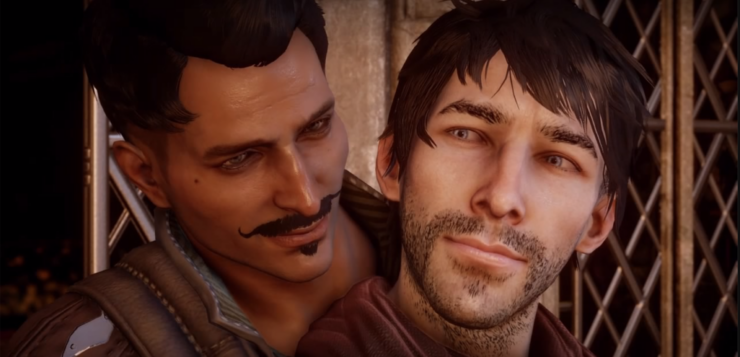THE MAIN CATALYST for my switch from playing mostly female characters to living vicariously through male characters must have been when I was accidentally forwarded a lesbian story arc in Dragon Age II. In the 2011 game, you play as Hawke—a human refugee who is soon caught up in the social, political, and magical struggles of the city where they now live. Most of the storyline is already predetermined for players, except that they can choose Hawke’s first name, gender, appearance, and class at the start, followed by any dialog options that appear throughout the game’s quests. Along the way, players meet non-playable characters who will join Hawke’s party, fight in battles, unlock unique dialog options, and weigh in on story beats. Depending on the players’ actions, Hawke’s companions will view them either favorably or not, which will impact the storyline and—as I would soon find out—open opportunities for monogamous romance.
As a young adolescent who had not yet started to question his sexuality, I was stunned by the experience of romancing my female Hawke with a female party member. The idea of gay and lesbian people existing was no surprise to me, but the fact that I had initiated a same-gender romance in a video game—despite knowing that both characters have different gender identities from my own—affected me very differently than did the passive experience of, say, witnessing a gay kiss on TV or film. My actions determined the course of this digital romance, a scenario that made me wonder whether those virtual actions had revealed an unknown, inchoate desire.
Moments like these reveal how formative video games have been to my queer identity—albeit in ways that the developers, or I, may not have intended. After this first foray, I would still need more time to discover how playing as a male character seeking proxy same-gender relationships would feel more natural than playing a female in search of a man.
Ashton Corsetti, a writer interested in narrative design, technical communication, and digital rhetoric, works in business-to-business marketing and public relations for media and IT organizations.







